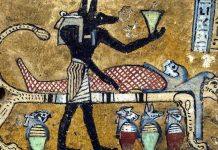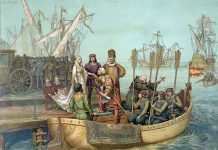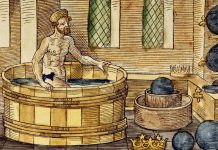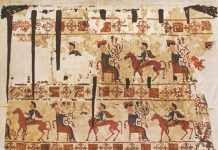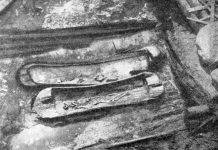In 1768, Count Mariusz August Beniowski, who defended the right of his homeland – Poland – to complete separation from the Russian Empire, of which it was a part, not in words, but in battles, was captured. Like other recalcitrant nobles, in the Military Commission of Inquiry, he gave the word of a nobleman that he would never draw a saber against the monarchy again. But, like other nobles, he did not hesitate to break his vow of honor, so noticeably disturbing the Russian rear that the Gathering of the Warsaw Confederates, awarding him the Order of the White Eagle, gave him the rank of general. Beniovsky’s regiments did not get involved in local skirmishes with impunity for a long time, soon they were completely defeated. The convict carriage took the count-rebel to St. Petersburg, where he spent some time in the casemate of the Peter and Paul Fortress, after which, deprived of class privileges, he went to the Kazan exile for “labor punishment”.
The Count got off very lightly. For “treasonable actions against the tsar and the fatherland”, execution by hanging was supposed. And then, unexpectedly, he was granted life. The reason for the sovereign’s mercy was revealed by the escort officer Ivan Khramnikov. Being pretty tipsy, he blabbed that the prisoner was spared in the firm hope that he would help to find out about the secret plans of the Polish conspirators by denunciations. The count flared up, saying that he would rather eat himself. The guards did not understand him:
– In vain! If you open the instigators, the title and estate will be returned.
– So that you can be in my place with such reasoning! The prisoner shouted angrily.
Definitely croaked. For appropriating the provisions of the treasury, having torn off the epaulettes, while waiting for the tribunal, an officer was placed in a barred cubicle next to the Poles’ room. From there, swearing dirty, the guards threatened former colleagues with an ambulance with his own hand. The unbridled temper of the disgraced officer pleased the count. During the distribution of grub , he told him directly:
– You and I, Ivan, have the same road. It is necessary to get to Petersburg. From there, run by water to warm countries, to the other side of the Earth. To make it more reliable, Lieutenant Commander Karl Weybland, who is offended and sued by the commanders, who knows naval business very well, will be reunited with us.
They struck hands. On the way to work in the stone quarry, the trio, after leaving, threw off their convict clothes in the alder and changed into civilian dresses, exchanged by Beniovsky at the prison stoker for a gold ring. They walked from Kazan to the capital at night, stealing food from vegetable gardens and farmsteads. They were captured and killed twice by peasants. Both times they left with respect, and even with provisions: ordinary people felt sympathy for the fugitives, who suffered not for murder, but for the just cause of freedom.
Having appeared in St. Petersburg, the fugitives greatly miscalculated, trying to hire sailors on a state-owned merchant ship going to Europe. The captain, realizing that they were not commoners in front of him, informed the police. Prison again. Another verdict. It couldn’t be more severe. The Senate Judicial Commission made a decision to banish “those who dared to self-rule” for life to Kamchatka, to the Bolsheretsky prison, which gained notoriety for inhumane treatment of prisoners.





